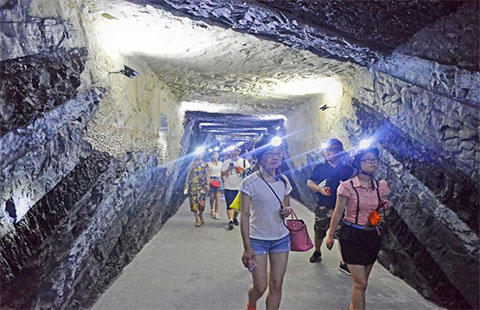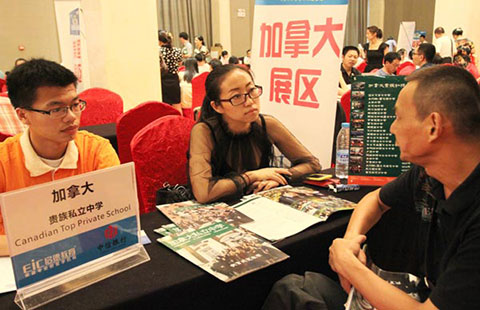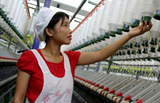China learns new way to stay fed
By Tan Zongyang and Hu Meidongin Fuzhou, Fujian (China Daily) Updated: 2012-06-16 10:49Spreading abroad
The Juncao technology, which has successfully spread across certain rural areas in China since its invention, attracted the attention of the UN Development Programme in 1992 because the project is ideal to combat unemployment, poverty and malnutrition in developing countries.
With the support of the UNDP, Lin's team made a journey to Southeast Asia countries, and found the technology are suitable for such countries as the Philippines and Thailand. He then appealed to the Chinese government to start training courses on the technology as agricultural technical aid for other developing countries.
The first international Juncao technology training seminar was held in Fuzhou, capital of Fujian, in 1995. Over the past 17 years, 49 training courses have been organized by Lin's team to pass on the technology to more than 1,500 trainees from 85 countries.
In countries such as Papua New Guinea, government-aided demonstration centers have been established to localize the technology.
Lin's daughter, Lin Dongmei, is a member of the expert team responsible for the foreign aid program in KwaZulu-Natal Province of South Africa.
According to her notes, a kilogram of oyster mushrooms could be sold for about $12 in a supermarket. The introduction of the Chinese technology has cut the price by almost half, enabling more ordinary people to have the fungi as a high-protein food.
The team also trains other unprivileged local communities to grow Juncao mushroom.
"I saw an unemployed single mother in a village, who can't even read a word, has earned $300 a month after learning how to grow Juncao mushroom, quadrupling her past income and bringing her dignity and hope to send her son to receive a college education," she recalled.
Supported by the Juncao demonstration center, KwaZulu-Natal Province now has five satellite sites to produces raw materials and market produce for growing mushrooms, said Bancedile Buthelezi, a research technician from the province's agriculture department.
"Juncao technology benefits our local economy, saves many poor people's lives and helps to fight land erosion," she said.
The future of Juncao
Although referred to by the trainees as "father of Juncao", Lin Zhanxi agreed that he still does not know all the potential of the technology he invented.
According to Lin, China has 400 million hectares of grassland, three times the area of arable land, and much of the grassland resources have not been fully utilized.
If the technology were applied, the edible mushrooms generated from 0.06 hectare of grassland could offer five times the protein content of hybrid rice grown in the same area, he said.
In addition, his team is undertaking a more ambitious project, to use Juncao grass and the waste fibers for mushroom production as materials for biomass energy.
"We should change the idea that grass is of little use and make it a worldwide strategic resource to fight against the food and energy crises," Lin said.
Another demonstration center is scheduled for construction this year in Fiji with aid from the Chinese government.
Phillip Low, a trainee from the island country in the South Pacific, said Fiji relied on imports of mushrooms in the past, but now it is ready to build an industry from scratch with the help of Chinese experts.
"It would be better to teach a man to fish than to give a man a fish," he said, quoting the Chinese proverb.
Contact the writers at tanzongyang@chinadaily.com.cn and humeidong@chinadaily.com.cn
- China's FX policy aims at freer currency: Australian economist
- China's non-bank lending for real estate grows
- Agricultural Bank of China expands farming finance service
- Almost ten thousand new cars ruined in Tianjin blasts
- Yuan stabilizes after central bank reassures markets
- 9 major accidents caused by hazardous materials
- Equity offering resumes in Chinese stock market
- China outbound direct investment jumps in seven months
















